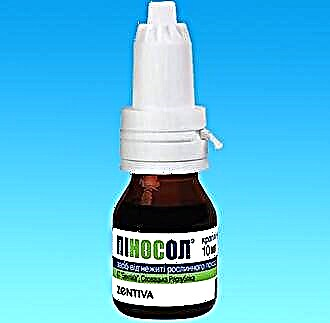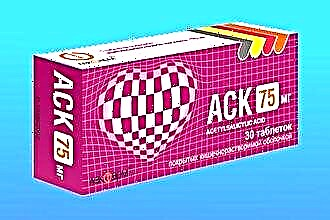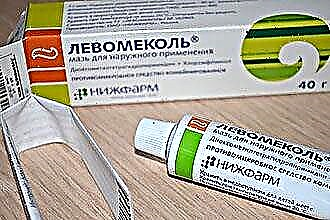A cough for a child, especially a small child, is quite normal. In children under one year old, it may not indicate pathology at all, but have purely physiological reasons. Still not being able to blow his nose on his own, the child thus clears the throat and nasal passages from the accumulated mucus and small particles of dust. But if a dry cough recurs often or is paroxysmal, it is worth thinking about what to do and how to help the child get rid of it.
Cough reasons
 The appearance of dry cough in children can be provoked by a variety of reasons, including non-infectious ones. And the way how to cure it directly depends on the cause, since the cough itself is just a symptom, a signal that the body is uncomfortable.
The appearance of dry cough in children can be provoked by a variety of reasons, including non-infectious ones. And the way how to cure it directly depends on the cause, since the cough itself is just a symptom, a signal that the body is uncomfortable.
Here are the most basic problems on which it can arise and little secrets how to distinguish them from each other:
- Dehydration. It comes on very quickly in young children. If the air temperature is high or the child is too warmly dressed, he begins to sweat actively. And the first to lose moisture are delicate mucous membranes - they dry out, and the baby begins to cough.
- Dry and / or cold air. The process described above also occurs when the air is too dry: sticky crusts form in the nose, which immediately collect dust, and the mucous throat becomes irritated. Cold air can cause laryngeal spasm and reflex cough.
- Laryngeal irritation (mechanical or chemical). There are a great many reasons for it: smoke (including old tobacco smoke, which tends to penetrate furniture and walls), strong odors, dust, foreign objects entering the respiratory tract, food that is too hot or spicy. Such a cough occurs suddenly, and after eliminating the irritant, it immediately disappears.
- Colds, acute respiratory infections. Accompanied by a dry, barking cough at an early stage. Such a cough is always recognizable, since it has pronounced concomitant symptoms: snot, weakness, lack of appetite, drowsiness. The kid begins to be capricious, the temperature gradually rises.
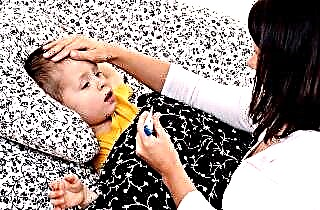 Reflux disease. It occurs due to a loose closure of the reflux valve that blocks the passage to the stomach. The contents of the stomach enter the esophagus, irritating it and provoking a cough. During the day, the child hardly coughs, but as soon as he takes a horizontal position, a dry cough begins a few hours later. There are usually no other symptoms. Sometimes there is sour breath, and the baby complains of abdominal pain.
Reflux disease. It occurs due to a loose closure of the reflux valve that blocks the passage to the stomach. The contents of the stomach enter the esophagus, irritating it and provoking a cough. During the day, the child hardly coughs, but as soon as he takes a horizontal position, a dry cough begins a few hours later. There are usually no other symptoms. Sometimes there is sour breath, and the baby complains of abdominal pain.- Bronchial asthma. Suffocative, paroxysmal cough that begins at night and cannot be relieved by conventional means. When a mother knows about such a problem in a child, she always has a special inhaler at hand that quickly relieves bronchial spasms. If the attack happened for the first time, you can give a bronchodilator syrup or just breathe in warm steam from a soda solution or a decoction of herbs.
- Allergy. A severe allergic cough is more likely to be wet than dry, as it is accompanied by profuse mucus from the nose, swelling of the larynx, and redness of the eyes. But with constant weak exposure to the allergen, the child can cough from time to time without other accompanying symptoms. It can be very difficult to find the cause of the cough in this case.
- Heart cough. It occurs due to oxygen deficiency in case of malfunctioning of the cardiovascular system. The brain perceives this as a lack of air and a reflex cough begins. In this case, the child may complain of chest pain, intensifying when coughing, and the inability to take a deep breath.
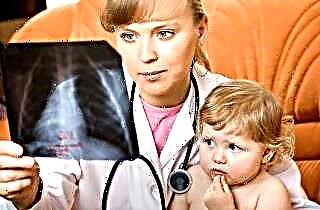 Pneumonia. Sluggish pneumonia is a dangerous chronic disease that, if untreated, leads to changes in the structure of the lungs. It can occur against a background of low-grade fever, without a runny nose and severe wheezing. But just its characteristic symptom is a dry, unproductive cough, shortness of breath, small sputum discharge with traces of blood is possible.
Pneumonia. Sluggish pneumonia is a dangerous chronic disease that, if untreated, leads to changes in the structure of the lungs. It can occur against a background of low-grade fever, without a runny nose and severe wheezing. But just its characteristic symptom is a dry, unproductive cough, shortness of breath, small sputum discharge with traces of blood is possible.- Viruses and infections. They are never without temperature! This is a natural defense reaction of the body, which creates unfavorable conditions for the multiplication of viruses. Moreover, the stronger the child's immunity and the larger the attack of microbes, the higher the temperature will be. Depending on the diagnosis, there may be other accompanying symptoms: skin rashes, weakness, vomiting, stuffy nose, swelling. Some diseases are masked, and the high temperature at the beginning can drop to 37-37.2 and keep it that way for a long time. Moms think that this is a recovery, and this is a sluggish inflammatory process.
The more accurately the cause of a dry cough is determined, the easier it is to find a way to quickly cure it. Unfortunately, it is not always possible to do this on your own. Therefore, if you are in doubt about your diagnosis, be sure to consult your doctor.
Treatment methods
 A dry cough with physiological causes does not need to be treated. After a year, it usually goes away on its own. The main thing is to provide the child with proper care, regularly clean the nose and walk more in the fresh air. Hardening procedures also strengthen the immune system and prevent the appearance of a cough in case of sudden hypothermia.
A dry cough with physiological causes does not need to be treated. After a year, it usually goes away on its own. The main thing is to provide the child with proper care, regularly clean the nose and walk more in the fresh air. Hardening procedures also strengthen the immune system and prevent the appearance of a cough in case of sudden hypothermia.
With a dry cough caused by irritation of the larynx due to dry air, dust, odors, and other reasons, the first thing to do is to remove the irritant. And if this is not possible, then take the child to another room. Then you can give him warm milk and butter. It will soothe irritation and neutralize toxins. As a preventive measure, it is necessary to monitor the temperature of food and drink that is served to the baby.
Every mother knows how to cure a cough with acute respiratory infections and colds. First of all, this is bed rest and constant warm drinks. It will relieve irritation of the larynx, moisturize mucous membranes, flush mucus.
If you give your child decoctions of herbs with anti-inflammatory properties (from leaves and twigs of currants, raspberries, chamomile, linden, mint, etc.), they will quickly soothe the throat and even help bring down the temperature a little.
 Folk remedies are a great way to treat a dry cough in a child, even at the initial stage of ARVI and bronchitis. But it is better to do this under the supervision of a doctor. From effective folk remedies can be used for children of any age: syrup from tea rose petals, aloe juice with honey, black radish juice with honey, raspberry syrup, onion broth, figs boiled in milk.
Folk remedies are a great way to treat a dry cough in a child, even at the initial stage of ARVI and bronchitis. But it is better to do this under the supervision of a doctor. From effective folk remedies can be used for children of any age: syrup from tea rose petals, aloe juice with honey, black radish juice with honey, raspberry syrup, onion broth, figs boiled in milk.
The nose also cannot be ignored. If it is laid down all the time, then the child has to breathe through the mouth, and this causes the larynx to dry out and cough. The smallest ones can drip their nose with fresh beet juice diluted with water. Children from 3-4 years old - half onion juice with honey. After 6 years, you can already use vasoconstrictor drugs, but carefully monitor the dosage.
Potions and procedures
 An effective way to quickly cure a cough is ready-made pharmaceutical mixtures and syrups. The liquid form ensures that the medicine is quickly absorbed and does not irritate the mucous membrane additionally, like a tablet. In addition, baby syrups are usually sweet and tasty, and you don't have to force the child to drink the medicine by force.
An effective way to quickly cure a cough is ready-made pharmaceutical mixtures and syrups. The liquid form ensures that the medicine is quickly absorbed and does not irritate the mucous membrane additionally, like a tablet. In addition, baby syrups are usually sweet and tasty, and you don't have to force the child to drink the medicine by force.
When choosing a pharmacy, you need to be careful. Syrups can be expectorant and antitussive. They act in completely different ways, and in no case should they be taken at the same time. That is why it is better to seek medical advice. He will confirm if you have correctly identified the cause of your cough and tell you which remedy is best for your case.
Antitussive drugs inhibit the cough reflex. Simply put, they simply suppress the cough without affecting its underlying causes. They are prescribed for residual cough and inflammation of the upper respiratory tract: laryngitis, pharyngitis, laryngotracheitis. Prostitutes for a good mood: prostitutes Omsk Press and rest The most effective are "Codelac", "Sinekod" and others. Such drugs are not intended for long-term use, they are used as a temporary means to alleviate the condition of the baby.
Mucolytic (expectorant) drugs are designed to make it easier to cough up and help to clear mucus. They are used when thick mucus remains in the lungs and bronchi after an illness, from which the baby cannot get rid of during a cough. This is not even a way to quickly cure a dry cough, but a means to turn it into a wet one and speed up recovery. More often than others, children are prescribed "Mukaltin", "Ambroxol", "Herbion", "Bromhexin", "ACC-100".
 In no case should a child be given antibiotics without a doctor's prescription. Although, when coughing due to infectious causes, they are sometimes a necessary component of treatment. The dosage and type of drug is determined by the doctor. If you are using folk remedies at the same time, you must definitely tell the pediatrician about this, as they may not be combined with the medication you are taking.
In no case should a child be given antibiotics without a doctor's prescription. Although, when coughing due to infectious causes, they are sometimes a necessary component of treatment. The dosage and type of drug is determined by the doctor. If you are using folk remedies at the same time, you must definitely tell the pediatrician about this, as they may not be combined with the medication you are taking.
Warming bronchi and light procedures help to treat dry cough in children: rubbing, compresses, mustard plasters, warming up with a blue lamp, honey cakes. They can be done only if the body temperature does not exceed 37.2.
After warming up, the child should remain in a warm bed for at least an hour. It is necessary to ensure that he is not in a draft, the air temperature in the room does not drop below 22 degrees, and the clothes are not too warm (so that the baby does not sweat).
Care rules
Proper child care during this period will help to quickly cure a dry cough. Everything must be done to make it as easy as possible for him to breathe and help overcome the underlying disease:
- ensure the flow of clean air into the room: ventilate it at least 2 times a day in any weather;
- maintain a moderate air humidity, it is very good if there is an ionizer or ozonizer;
- perform wet cleaning daily - dust particles settle in the nose and also provoke a cough;
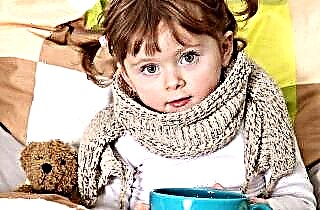 check if there is anything in the room that can cause allergies or irritation of the larynx: sources of strong odor, household chemicals, tobacco smoke, etc.;
check if there is anything in the room that can cause allergies or irritation of the larynx: sources of strong odor, household chemicals, tobacco smoke, etc.;- warm drink should be constantly - it perfectly moisturizes mucous membranes and prevents dehydration;
- organize proper nutrition: food should be moderately warm, not too hard and in no case spicy;
- use aroma lamps in order to clean the air in the room from pathogens;
- use steam inhalation to prevent severe coughing attacks.
When the treatment of dry cough in a child is chosen correctly, active coughing begins after 3-4 days. This suggests that the baby is "on the mend."
But if a dry cough continues, even without a fever, for more than two weeks, this is a cause for alarm and a visit to the doctor. You cannot run it! This can lead to serious complications and the development of chronic respiratory diseases.

 Reflux disease. It occurs due to a loose closure of the reflux valve that blocks the passage to the stomach. The contents of the stomach enter the esophagus, irritating it and provoking a cough. During the day, the child hardly coughs, but as soon as he takes a horizontal position, a dry cough begins a few hours later. There are usually no other symptoms. Sometimes there is sour breath, and the baby complains of abdominal pain.
Reflux disease. It occurs due to a loose closure of the reflux valve that blocks the passage to the stomach. The contents of the stomach enter the esophagus, irritating it and provoking a cough. During the day, the child hardly coughs, but as soon as he takes a horizontal position, a dry cough begins a few hours later. There are usually no other symptoms. Sometimes there is sour breath, and the baby complains of abdominal pain. Pneumonia. Sluggish pneumonia is a dangerous chronic disease that, if untreated, leads to changes in the structure of the lungs. It can occur against a background of low-grade fever, without a runny nose and severe wheezing. But just its characteristic symptom is a dry, unproductive cough, shortness of breath, small sputum discharge with traces of blood is possible.
Pneumonia. Sluggish pneumonia is a dangerous chronic disease that, if untreated, leads to changes in the structure of the lungs. It can occur against a background of low-grade fever, without a runny nose and severe wheezing. But just its characteristic symptom is a dry, unproductive cough, shortness of breath, small sputum discharge with traces of blood is possible. check if there is anything in the room that can cause allergies or irritation of the larynx: sources of strong odor, household chemicals, tobacco smoke, etc.;
check if there is anything in the room that can cause allergies or irritation of the larynx: sources of strong odor, household chemicals, tobacco smoke, etc.;